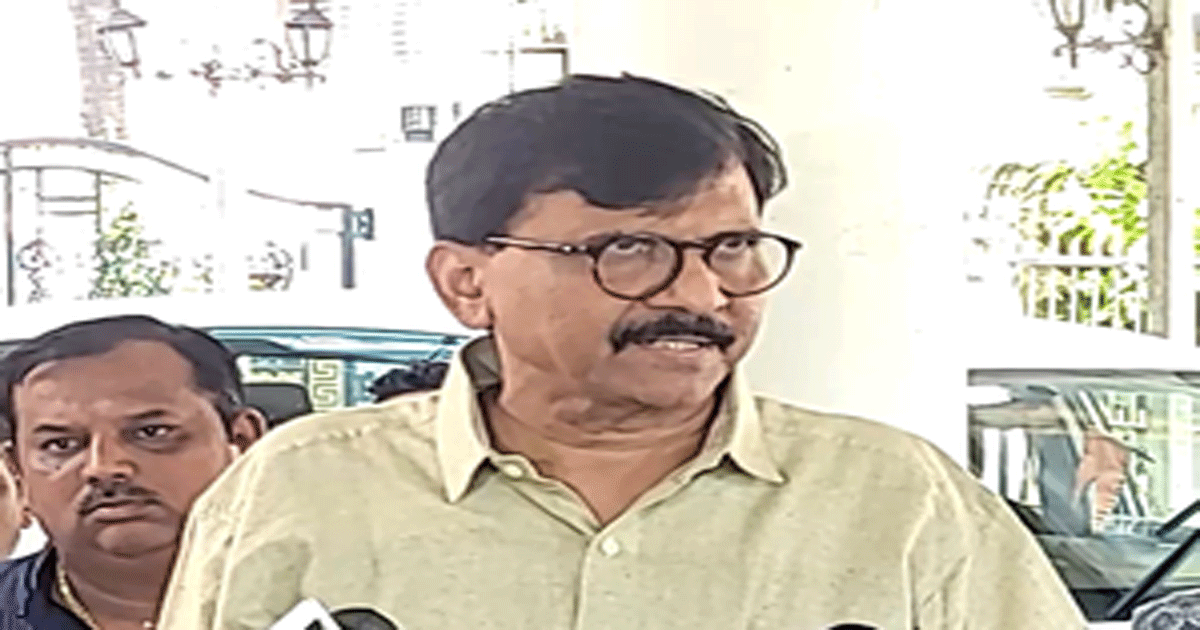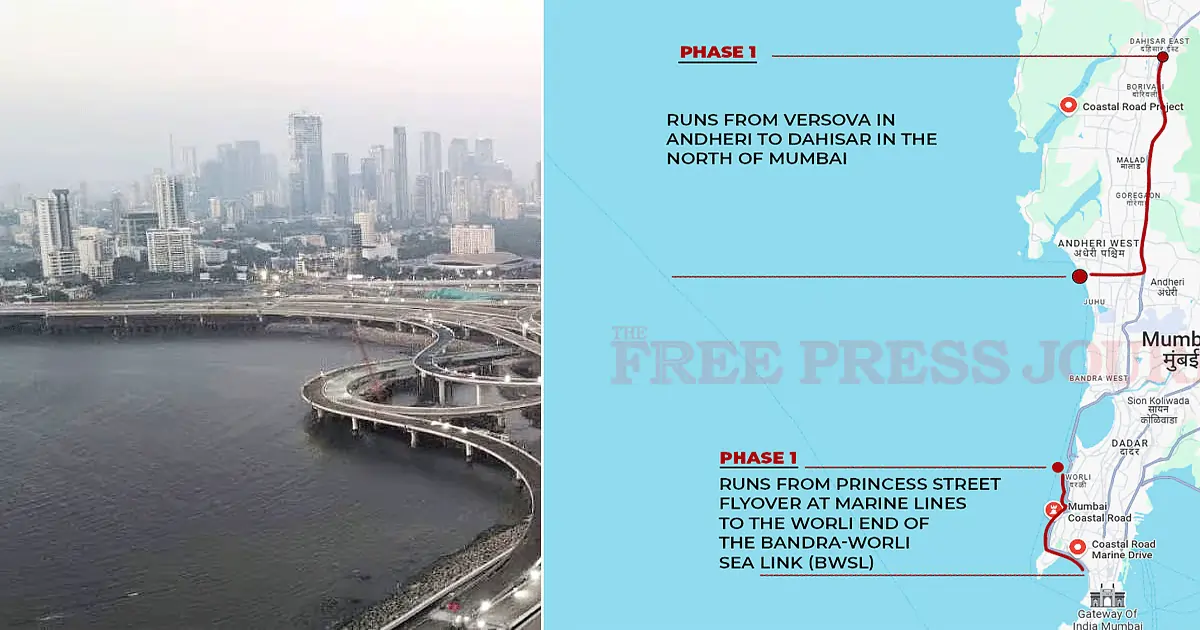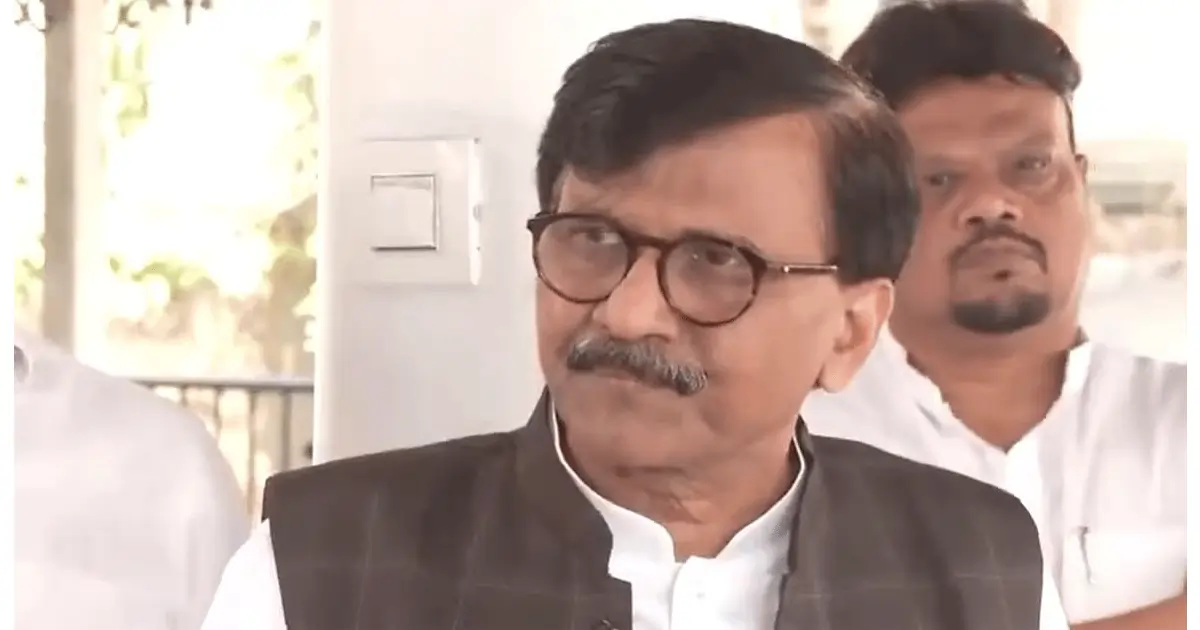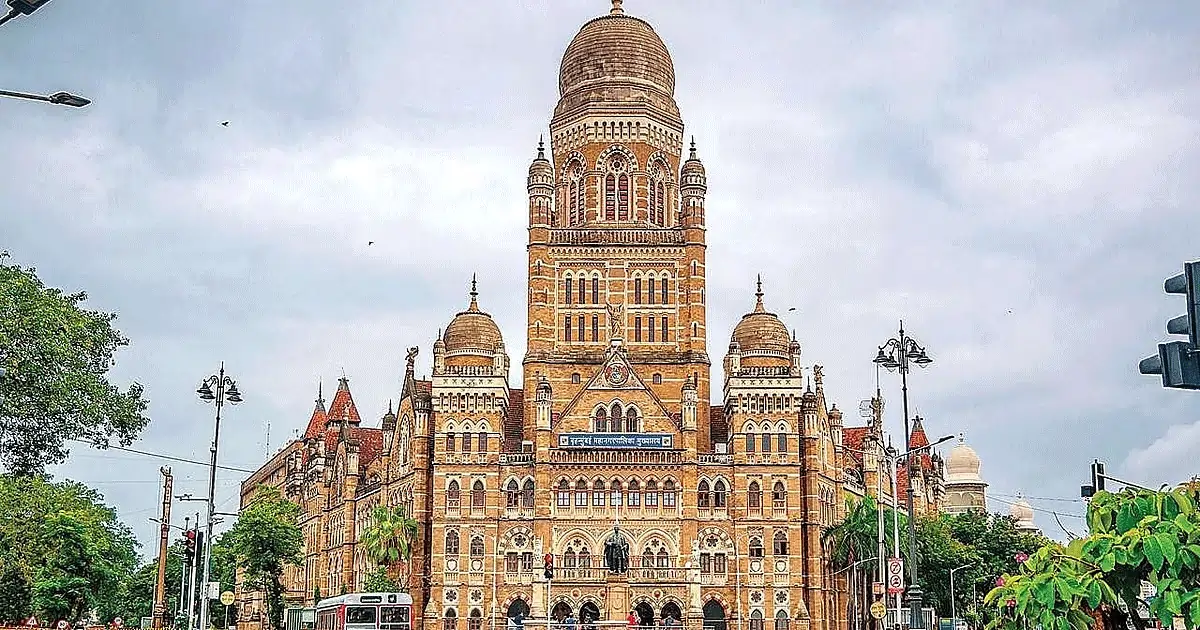Maharashtra
Shiv Sena (UBT) to go solo in local and civic body polls in Maharashtra

Mumbai, Jan 11: Shiv Sena (UBT) has unilaterally announced that the party will go solo in the upcoming nagar panchayat, nagar parishad, zilla parishad and municipal corporation elections. Party MP Sanjay Raut announced this here on Saturday.
”We will fight on our own from Nagpur to Mumbai. We have to see for ourselves, whatever happens, happens. It is our decision. When will the workers be given a chance in Mumbai, Thane and Nagpur? Not giving a chance to the workers will hurt the party’s growth,” Raut said. He also said,
“all parties should contest the local body elections on their own and give a chance to their workers.”
“In the alliance, the workers do not get a chance to fight the Lok Sabha and the Assembly elections. This is affecting the party, in fact, the growth of the party. We should fight in the municipal corporation, district council and Nagar Panchayat on our own and strengthen our party,” said Raut indicating that the party is ready for revival and stay relevant despite drubbing in the state assembly elections.
He told reporters that the party chief Uddhav Thackeray has given his consent for fighting ensuing local and civic body elections independently. Thackeray had recently interacted with the party cadres from across the state and during those meetings the workers had made a strong case for going solo.
Raut’s announcement is being seen in the Maharashtra political circle as a beginning of the disbanding of the Maha Vikas Aghadi which contested together the Lok Sabha and state assembly elections.
Raut on Friday had dared the Congress to announce that the INDIA bloc does not exist any more, especially after its move to take on Aam Aadmi Party in Delhi assembly elections. For Shiv Sena, its supremacy over India’s richest civic body, the BrihanMumbai Municipal Corporation with a budget of almost Rs 40,000 crore is important to remain in reckoning. Besides, the party sees an opportunity to rejuvenate and revive going solo in the elections to other civic and local bodies.
Raut’s statement comes a day after former chief minister Eknath Shinde hinted that the Shiv Sena, BJP and NCP will together fight the upcoming local and civic body elections in a bid to retain the MahaYuti’s victory march and its dominance.
Reacting to Raut’s announcement, the NCP-SP legislature party leader and former Minister Jitendra Awhad said, “If the Thackeray group has made a decision, who are we to stop it? Raut should have discussed and later taken the decision.”
Shiv Sena UBT’s move is crucial as the party was not comfortable with the Congress party’s arrogance and its successive steps to undermine the regional parties. Raut and state Congress chief Nana Patole had differed over seat sharing that delayed the Maha Vikas Aghadi to seal the seat sharing agreement and jointly decide the poll strategy to take on the MahaYuti.
NCP-SP MP Dr Amol Kolhe on Thursday had targeted the Congress and Shiv Sena UBT over their style of functioning. “The Congress party’s broken back is not ready to straighten out yet, while the Thackeray group is not ready to wake up from its slumber. Shiv Sena and Congress have not yet shaken off their stagnation, so we (NCP-SP) will have to work from now on with new enthusiasm to revive and win the local and civic body elections,” he had told the party workers.
On the other hand, veteran Congress legislator Vijay Wadettiwar had commented, “Had the stalemate over the seat sharing resolved in two days, the MVA partners would have got poll planning and campaigning. We could not plan a joint program for the elections with all three parties. There were many reasons for this. So this is one of the main reasons, the mess in seat allocation and the time spent on it definitely affected the MVA’s poll prospects badly.”
Business
BMC Budget 2025: Over ₹5500 Crore Allocated For Development Of Coastal Road (Phase 1 & 2); Details Inside

Mumbai: The Brihanmumbai Municipal Corporation (BMC) presented its budget for the financial year 2025–2026 on Tuesday. BMC assigned an unprecedented budget of Rs 74,366 crore for the financial year 2025-26. The civic body budget allocated approximately Rs 4,000 crore for the Mumbai Coastal Road Project (Phase 2). BMC mentioned Phase 2, which will connect Versova and Dahisar.
The budget is a crucial component of the BMC’s operations, as it outlines the key factors and the city’s development, as well as what should be invested in and how to invest for the state. Coastal roads are crucial for Mumbai because they provide commuters with quick access and good connectivity, cutting the travel time between Marine Drive and Bandra-Worli Sea Link from 45 to 50 minutes to less than 10 minutes.
Mumbai Coastal Road Project (Phase 1)
The first phase of the Mumbai Coastal Road would be maintained, according to the budget, with Rs 1,516 crore allocated for the south section’s completion. Project Coastal Road (Phase 1) The first phase began in March 2024 with the opening of 10.58 km of coastal road. Starting at BD Somani Chowk, 280 m before the Princess Street Flyover at Marine Drive, the path leads to Worli, where it joins the Bandra-Worli Sea Link (BWSL). Estimated cost of the Mumbai Coastal Road Project Phase 1 was ₹13,060 crore.
Mumbai Coastal Road Project (Phase 2)
Phase 2 is now underway in the Versova and Dahisar neighborhoods of Mumbai. BMC mentioned the total amount of 4000 crore rupees that was permitted for phase 2 in the budget for 2025–2026. BMC is keenly focusing on the Coastal Road Project to develop the city and to reduce the traffic issue of Mumbai
BMC Budget 2025-26 Other Highlights
The BMC budget also prioritizes waste management services and educational facilities. Among the greatest services in Mumbai, together with the roads such as the Goregoan Mulund Link Road and the concretization projects
Maharashtra
Devendra Fadnavis Not Moving Into CM’s Official Residence Due To Superstition, Claims Sanjay Raut

Mumbai: Shiv Sena (UBT) leader Sanjay Raut on Tuesday claimed that Devendra Fadnavis has not shifted to `Varsha’, the official residence of the Maharashtra Chief Minister in south Mumbai, because of superstition.
The grapevine has it that buffaloes allegedly slaughtered in Guwahati during Eknath Shinde’s visit to the Kamakhya temple were buried on the premises of `Varsha’ so that the CM’s post should not stay with anybody else other than Shinde, he said.
Fadnavis succeeded Shinde as chief minister following the November 2024 assembly elections.
“Why isn’t Devendra Fadnavis not moving into `Varsha’? The CM has said even if he moves there, he will not sleep there. What is this? The `limbu samrat, limbu mirchi’ (a reference to those who practise black magic) of the Shiv Sena should respond to this,” said Raut, a member of the Rajya Sabha.
`Limbu’ (lemon) and `mirchi’ (chilli) are supposedly used by black magic practitioners.
“I have heard there were discussions within the BJP that the horns of the buffaloes sacrificed in Guwahati were buried in the lawns of Varsha….there is talk that the horns were brought here so that the CM’s post should not stay with anyone else, this is what the staff says,” Raut told reporters.
While there was no immediate reaction from the chief minister’s aides to Raut’s claims, Shiv Sena chief Eknath Shinde, now deputy CM, told reporters on a sarcastic note: “Raut is an expert in that field. He should know.”
In the past, Raut had alleged that buffaloes were slaughtered at Guwahati after Shinde revolted against Uddhav Thackeray and camped at a hotel in the Assam city with other rebel Shiv Sena MLAs before returning to Maharashtra and becoming chief minister by toppling the Thackeray-led Maha Vikas Aghadi government.
Raut, meanwhile, demanded an explanation from Fadnavis about why he was not living at `Varsha’, a “pride of the state.”
Maharashtra is a progressive state with a tradition of social reformers like Mahatma Phule, Prabodhankar Thackeray and Gadge Maharaj who assailed superstitions, he said, adding that yet superstition has now taken over the corridors of power.
Maharashtra
BMC Budget 2025: Mumbai Civic Body Extends ₹1000 Crore Grant To BEST For Growth & Sustainability

Mumbai: The Brihanmumbai Municipal Corporation (BMC) has proposed a financial grant of Rs 1,000 crore to the Brihanmumbai Electric Supply and Transport (BEST) Undertaking in its Budget Estimates (B.E.) for the financial year 2025-26. This allocation comes despite BMC’s own pressing financial commitments toward ongoing infrastructure projects and other essential objectives.
Since 2012-13, BMC has extended financial assistance totaling Rs 11,304.59 crore to BEST until January 2025. The new Rs 1,000 crore provision aims to address various operational and capital expenditures, including infrastructural development, capital equipment procurement, loan repayment, acquisition of new buses through a wet lease model, employee pay revisions, day-to-day operational costs, the Intelligent Transport Management System (ITMS) project, Diwali bonuses, pensioners’ gratuities, and electricity dues.
Additionally, the grant includes Rs 128.65 crore as BMC’s 5% share for the procurement and deployment of 2,000 electric buses for Mumbai, in accordance with the directives of the Maharashtra State Government.
Boost for Electric Mobility
In a significant push toward sustainable urban transport, the 15th Finance Commission has sanctioned Rs 992 crore for the purchase of electric buses. Of this, Rs 493.38 crore has already been disbursed to BEST, while the remaining Rs 498.62 crore will be transferred upon receipt from the Finance Commission. This initiative aligns with Mumbai’s long-term goal of transitioning to an eco-friendly public transport system.
Mumbai’s public transportation backbone, BEST, has been grappling with financial challenges in recent years. Despite serving nearly 35 lakh passengers daily, the BEST fleet is dwindling, with the number of buses reduced to below 3,000. Notably, nearly two-thirds of these buses are operated on wet lease agreements.
-

 Crime2 years ago
Crime2 years agoClass 10 student jumps to death in Jaipur
-

 Maharashtra4 months ago
Maharashtra4 months agoMumbai Local Train Update: Central Railway’s New Timetable Comes Into Effect; Check Full List Of Revised Timings & Stations
-

 Maharashtra4 months ago
Maharashtra4 months agoMumbai To Go Toll-Free Tonight! Maharashtra Govt Announces Complete Toll Waiver For Light Motor Vehicles At All 5 Entry Points Of City
-

 Maharashtra4 months ago
Maharashtra4 months agoFalse photo of Imtiaz Jaleel’s rally, exposing the fooling conspiracy
-

 National News4 months ago
National News4 months agoMinistry of Railways rolls out Special Drive 4.0 with focus on digitisation, cleanliness, inclusiveness and grievance redressal
-

 Crime4 months ago
Crime4 months agoBaba Siddique Murder: Mumbai Police Unable To Get Lawrence Bishnoi Custody Due To Home Ministry Order, Says Report
-

 Maharashtra3 months ago
Maharashtra3 months agoMaharashtra Elections 2024: Mumbai Metro & BEST Services Extended Till Midnight On Voting Day
-

 National News5 months ago
National News5 months agoJ&K: 4 Jawans Killed, 28 Injured After Bus Carrying BSF Personnel For Poll Duty Falls Into Gorge In Budgam; Terrifying Visuals Surface












